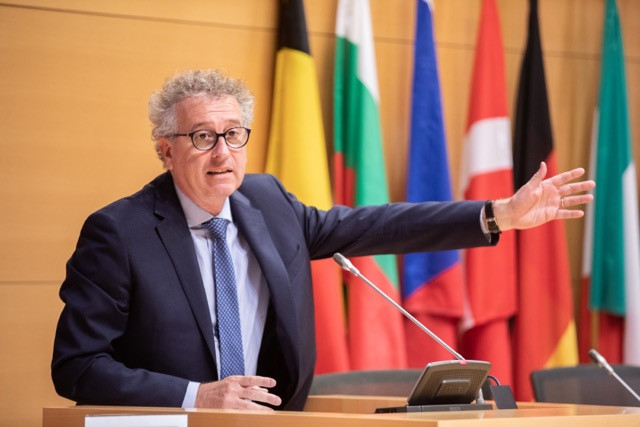News that Portuguese finance minister Mário Centeno is stepping down as president of the Eurogroup has heightened anticipation that Luxembourg could once again take a lead of the informal group of Eurozone finance ministers. Pierre Gramegna, the DP finance minister, is one of three candidates already being linked with the job.
Centeno, whose two and a half year mandate ends on 13 July, said in a tweet on Tuesday that he will inform the group of Eurozone finance ministers on Thursday of his decision not to seek a second mandate, “as by 15 June I will step down as finance minister of Portugal.” According to reports, Centeno has been eyeing the post of governor of the Bank of Portugal.
Gramegna was a candidate for the Eurogroup presidency in the autumn of 2017, when Dutch finance minister Jeroen Dijsselbloem stepped down. But the fact that Jean-Claude Juncker was then president of the European Commission, and that Luxembourg was facing elections 12 months later, probably contributed to the Portuguese candidate being favoured. With Juncker gone and the next parliamentary elections in Luxembourg scheduled for October 2023, Gramegna is back in the frame this time around.
In his own tweet, Gramegna congratulated Centeno for his achievements wile in the post, “especially the ambitious financial responses to the challenges of the #Covid19 pandemic. I appreciated our bilateral cooperation & wish you all the best for the future.” As recently as Monday, Gramegna had told RTL’s Frank Goetz that it would “naturally be an honour if one could do something like that.”
Media reports from Politico and Bloomberg suggest that Spain’s Nadia Calviño is a frontrunner for the presidency, while Ireland’s Paschal Donohoe could also be a challenger for the post.
Luxembourg has a strong connection with the Eurogroup. The first informal meeting of eurozone finance ministers took place on 4 June 1998 at the Château de Senningen and its first permanent president was former prime minister and finance minister Jean-Claude Juncker, who served in the post from 2005 to 2013.
